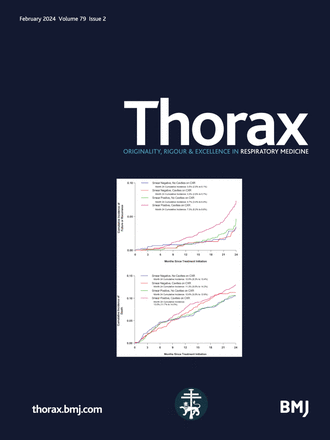在重症监护中利用人工智能:机遇、挑战和成功的关键步骤。
IF 7.7
1区 医学
Q1 RESPIRATORY SYSTEM
引用次数: 0
摘要
将人工智能(AI)整合到重症监护中,在增强早期诊断、预测患者病情恶化、个性化治疗和为临床决策提供信息方面具有巨大潜力。尽管有这样的前景,但人工智能在重症监护室(ICU)的应用面临着挑战,如已批准用于临床和/或成功部署在重症监护中的人工智能工具数量有限。方法综述人工智能在重症监护中的研究概况;评估已批准的工具;并考虑挑战和机遇,重点关注ICU人工智能算法生命周期的不同阶段,包括数据收集、建模、验证、实施和部署后监测。检索了同行评议的出版物,使用了2000-2025年间与人工智能和重症监护相关的术语。结果人工智能在ICU中的应用研究存在显著的局限性,包括数据质量欠佳、回顾性分析和缺乏前瞻性验证研究。少数获得美国食品和药物管理局批准用于ICU的人工智能算法尚未得到广泛的临床应用,部分原因是缺乏用户信任、集成挑战、临床影响不明确或性能漂移等问题。克服这些障碍将需要一种结构化的方法来解决人工智能生命周期中确定的关键挑战,包括现实世界数据的集成、部署后性能监控、治理和道德考虑。一个成功的实现路径应该考虑现实的目标设定、更好的模型可解释性、改进的工作流集成和积极的终端用户参与。结论:利用人工智能推进重症监护需要特别关注跨学科合作、强大的验证框架和自适应治理模型。严格的科学评价需要与快速部署的压力相平衡。确保透明度、安全性和与临床工作流程的一致性对于在重症监护中实现有意义的人工智能集成至关重要。本文章由计算机程序翻译,如有差异,请以英文原文为准。
Harnessing AI in critical care: opportunities, challenges and key steps for success.
BACKGROUND
The integration of artificial intelligence (AI) into critical care offers significant potential to enhance early diagnosis, predict patient deterioration, personalise treatment and inform clinical decision-making. Despite this promise, AI adoption in the intensive care unit (ICU) faces challenges, as illustrated by the limited number of AI tools which have been approved for clinical use and/or successfully deployed in critical care.
METHODS
Aims of the review are to provide a synthesis of research on AI in critical care; assess approved tools; and consider challenges and opportunities, focusing on the different phases of the AI algorithm lifecycle in the ICU, including data collection, modelling, validation, implementation and post-deployment monitoring. Peer-reviewed publications were searched using terms relevant to AI and critical care spanning the years 2000-2025.
RESULTS
Research on AI applications in the ICU is characterised by significant limitations including suboptimal data quality, retrospective analyses and a paucity of prospective validation studies. The few AI algorithms that have received Food and Drug Administration approval for use in the ICU have not gained widespread clinical adoption due, in part, to issues such as lack of user trust, integration challenges, unclear clinical impact or performance drift. Overcoming these barriers will require a structured approach that addresses the key challenges identified in the AI lifecycle, including the integration of real-world data, post-deployment performance monitoring, governance and ethical considerations. A successful implementation pathway should consider realistic goal-setting, greater model explainability, improved workflow integration and active end-user involvement.
CONCLUSIONS
Advancing critical care with AI will require special attention to interdisciplinary collaboration, robust validation frameworks and adaptive governance models. The need for rigorous scientific evaluation needs to be balanced with the pressure for rapid deployment. Ensuring transparency, safety and alignment with clinical workflows will be critical to achieving meaningful AI integration in critical care.
求助全文
通过发布文献求助,成功后即可免费获取论文全文。
去求助
来源期刊

Thorax
医学-呼吸系统
CiteScore
16.10
自引率
2.00%
发文量
197
审稿时长
1 months
期刊介绍:
Thorax stands as one of the premier respiratory medicine journals globally, featuring clinical and experimental research articles spanning respiratory medicine, pediatrics, immunology, pharmacology, pathology, and surgery. The journal's mission is to publish noteworthy advancements in scientific understanding that are poised to influence clinical practice significantly. This encompasses articles delving into basic and translational mechanisms applicable to clinical material, covering areas such as cell and molecular biology, genetics, epidemiology, and immunology.
 求助内容:
求助内容: 应助结果提醒方式:
应助结果提醒方式:


